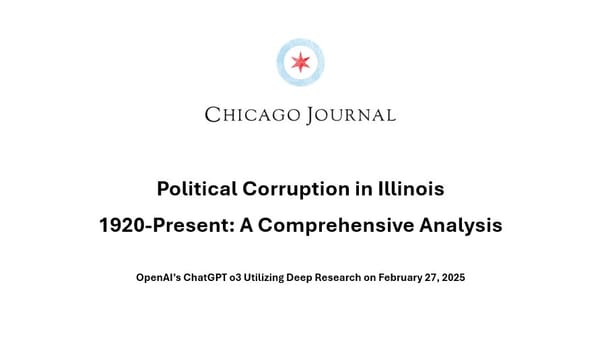Kankakee County Judge rules portions of Illinois SAFE-T Act unconstitutional
Illinois' controversial SAFE-T Act was scheduled to go into effect statewide on January 1, 2023, but now will be suspended in the 65 Illinois counties who participated in the consolidated lawsuit against Gov. J.B. Pritzker's administration and the other legislative leaders named in the suit.


Update: We've updated this story to include all of the lawsuit participating counties at the bottom of this post. Additional counties are expected to use the decision to temporarily postpone the discussed portions of the Act until the Illinois Supreme Court has a chance to rule on the case.
KANKAKEE, IL - A judge in Kankakee County has ruled the elimination of cash bail and pre-trial release portions of the controversial Illinois SAFE-T Act to be unconstitutional, suspending those portions of the Act's start date in 65 lawsuit participating counties, at least temporarily.
Illinois' controversial SAFE-T Act, that included provisions to eliminate cash bail across the state, was scheduled to go into effect on January 1, 2023, but now those portions will be suspended in the 65 Illinois counties who participated in the consolidated lawsuit against the administration of Illinois Governor J.B. Pritzker and the other legislative leaders named in the suit, at least until the Illinois Supreme Court can hear the case.
Kankakee Circuit Court Chief Judge Thomas Cunnington heard arguments last week against the Illinois SAFE-T Act brought from prosecutors and sheriffs around the state and, late Wednesday night, Cunnington ruled in favor of the plaintiffs. His ruling means at least the elimination of cash bail and pre-trial release provisions are unconstitutional and will not go into effect at the beginning of the new year for the 65 counties that participated in the suit.
Other portions of the SAFE-T Act, such as the body camera requirements and police training, will still go into effect in those 65 counties and the full SAFE-T Act will continue as currently written in the remainder of the 37 non-participating counties.
The controversial Illinois SAFE-T Act was approved by the Illinois General Assembly in January 2021 and pushed by State Democrats who have overwhelming supermajority control of the Illinois General Assembly. The measure has also been backed by Governor J.B. Pritzker's Administration.
The bill makes several significant changes to the state's criminal justice system but leading the controversy was the elimination of cash bail statewide. Until Cunnington's late Wednesday ruling, Illinois would have become the first state to eliminate cash bail across an entire state.
The measure has been widely unpopular outside of Illinois' political class and has received significant pushback from nearly all of the state's law enforcement community and nearly all of the state's 102 county prosecutor's offices. Still, the suspension of the Act for the counties participating in the suit came down to the final days of the year and Judge Cunnington's decision.
Due to the statewide unpopularity of the bill and facing heavy criticism for how and when it was pushed through, state lawmakers returned to legislative session after the November elections and passed an amendment to the SAFE-T Act that created some detainable offenses that allowed certain individuals to be held pending trial, but that did not stop the legal challenge in Kankakee County.
Kankakee County State's Attorney Jim Rowe argued the law was too broad to meet what's referred to as the "single subject rule" of the Illinois Constitution. Rowe also argued that it violated a constitutional provision that says "all persons shall be bailable by sufficient sureties," insisting that Illinois judges should be allowed to set cash bail.
"The Act was a 765 page bill passed during a lame duck session under cover of darkness at 4:00 a.m., affording legislators less than one hour to read it and vote on it, and denying the general public any opportunity to offer comment or input," Rowe said in a press release announcing the results of the lawsuit. "It amended the State Constitution and eroded the constitutional protections of the Victim Rights Act, all while disenfranchising the people of their Constitutional right to vote on such reforms. The people of Illinois deserve better than that, and today’s verdict condemns the Act for exactly what it is: unconstitutional."
Illinois Attorney General Kwame Raoul says that the state will appeal the ruling to the state's Supreme Court.
"To definitively resolve this challenge to the pretrial release portions of the SAFE-T Act, Governor Pritzker, the legislative leaders named in the consolidated cases and I intend to appeal the circuit court’s decision directly to the Illinois Supreme Court, where we will ask the court to reverse the circuit court’s decision," he said in a statement.
Cunnington agreed with the plaintiffs that the SAFE-T Act violates the Separation of Powers clause, violates the Victim Rights Act and unconstitutionally amends Article I Section 9 of the Constitution because voters were denied their right to vote on such a significant amendment to their criminal justice system.
As part of his ruling, Cunnington wrote "had the Legislature wanted to change the provisions in the Constitution regarding eliminating monetary bail... they should have submitted the question on the ballot to the electorate at a general election." He added that the legislature’s action in violation of the Separation of Powers stripped the court’s ability to ensure the safety of a victim and their family.
Updated list of Illinois counties participating in the suit:
- Adams County
- Bond County
- Boone County
- Brown County
- Carroll County
- Cass County
- Christian County
- Clay County
- Clinton County
- Coles County
- Cumberland County
- DeKalb County
- DeWitt County
- Douglas County
- Effingham County
- Fayette County
- Ford County
- Franklin County
- Fulton County
- Greene County
- Grundy County
- Hancock County
- Henderson County
- Jackson County
- Jasper County
- Jefferson County
- Jersey County
- Jo Daviess County
- Johnson County
- Kankakee County
- Kendall County
- Knox County
- LaSalle County
- Lee County
- Livingston County
- Logan County
- Macon County
- Mason County
- Madison County
- Massac County
- McDonough County
- McHenry County
- McLean County
- Mercer County
- Monroe County
- Montgomery County
- Moultrie County
- Ogle County
- Perry County
- Pope County
- Pulaski County
- Randolph County
- Saline County
- Sangamon County
- Scott County
- Shelby County
- Stephenson County
- Tazewell County
- Union County
- Vermilion County
- Washington County
- White County
- Will County
- Winnebago County
- Woodford County

The Chicago Journal needs your support.
At just $20/year, your subscription not only helps us grow, it helps maintain our commitment to independent publishing.
If you're already a subscriber and you'd like to send a tip to continue to support the Chicago Journal, which we would greatly appreciate, you can do so at the following link:
Send a tip to the Chicago Journal





